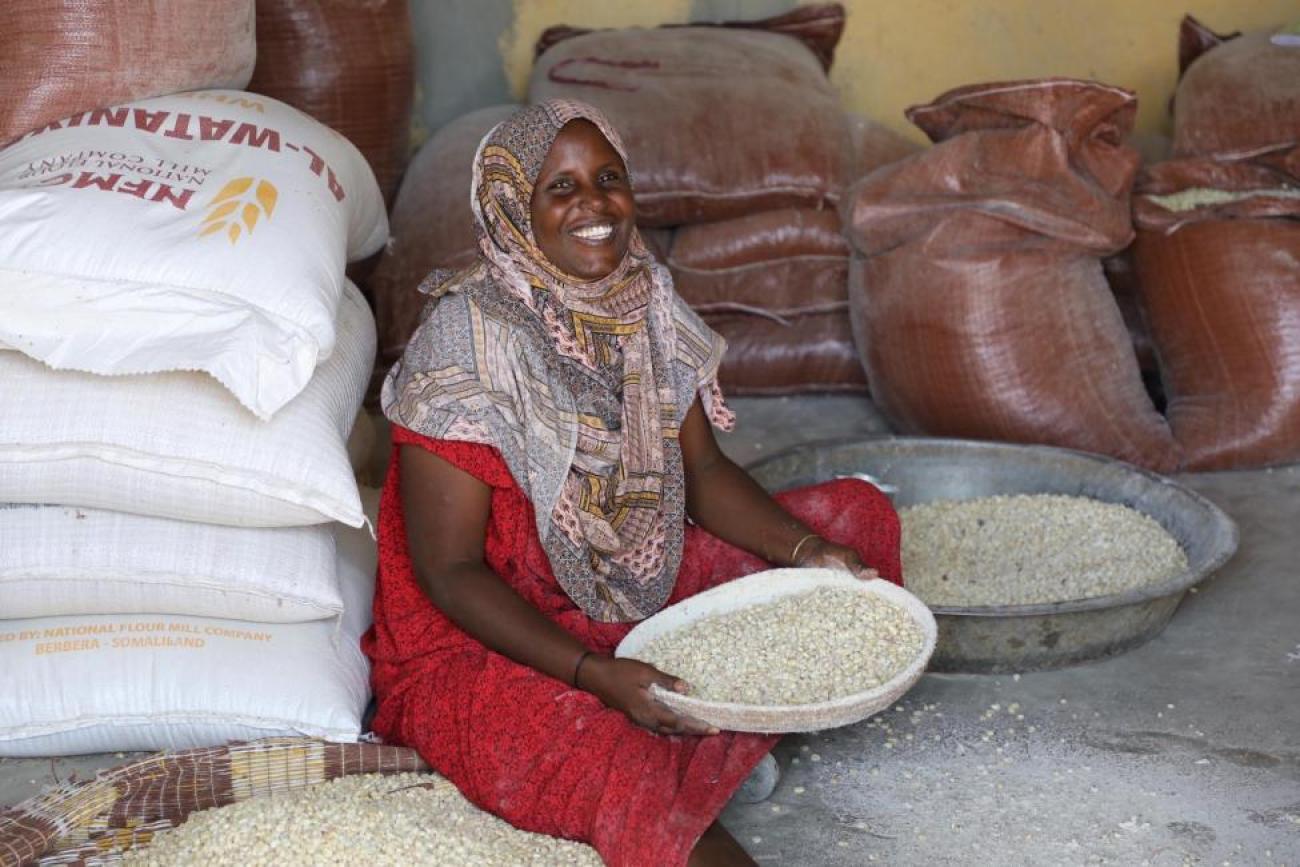In Ethiopia’s Somali region, recurrent droughts and erratic rainfall patterns have led to significant displacement and economic hardship. In 2024 alone, the loss of livestock forced thousands of people to leave their homes in search of livelihoods. For pastoralist communities, the loss of livestock is not just an economic setback, it disrupts their entire way of life.
In Goljano town, Efrah Sherif, a mother of three, faced the devastating impact of four consecutive years of drought. “I lost my herd, which provided milk and sustained our livelihood,” she recalls. Just as she struggled to recover, severe flooding hit the Somali region, wiping out the remaining livestock and grain supplies. With no means of survival, Efrah was uncertain about her future.
As the challenging situations took a tone on this mother, she witnessed the arrival of internally displaced persons who were coming to her town to seek support. “The situation was dire. We barely made it through the drought, we were in no position to support anyone,” says Efrah. “It was overwhelming,” she adds.
To address such crises, the International Organization for Migration (IOM) provides holistic support that not only meets immediate humanitarian needs but also lays the foundation for a long-term solution for vulnerable communities. Beyond providing shelter, distribution of non-food items (NFIs), and improving access to water sanitation and hygiene (WASH), IOM prioritizes livelihood support and social cohesion to both displaced and host communities, such as Efrah. This ensures that affected communities are not just surviving, but rebuilding their lives in a sustainable way.
“Host communities are the first humanitarians,” explains David Coomber, IOM Ethiopia’s Programme Manager for Peace and Recovery. “For durable solutions to be effective, we must include them in recovery efforts,” he adds.
In 2024, as part of IOM’s peacebuilding and social cohesion initiative, crucial livelihood support was provided to 507 female and 244 male-headed households and in Goljano town, Somali region. Through this support, over 750 households have established different types of small-scale businesses and started providing for their families. These businesses include retail shops, grain, and kitchen utensils. These businesses - ranging from retail shops to grain and kitchen utensil sales - are now helping families regain stability and independence.
Efrah is one of the women who benefited from this initiative. “I sell grains at my shop now providing a decent service while supporting my family,” she says. Efrah’s cereal shop is one of the few available in Goljano town. Before her shop was established, most of her clients had to go on a long distance to buy cereals.



